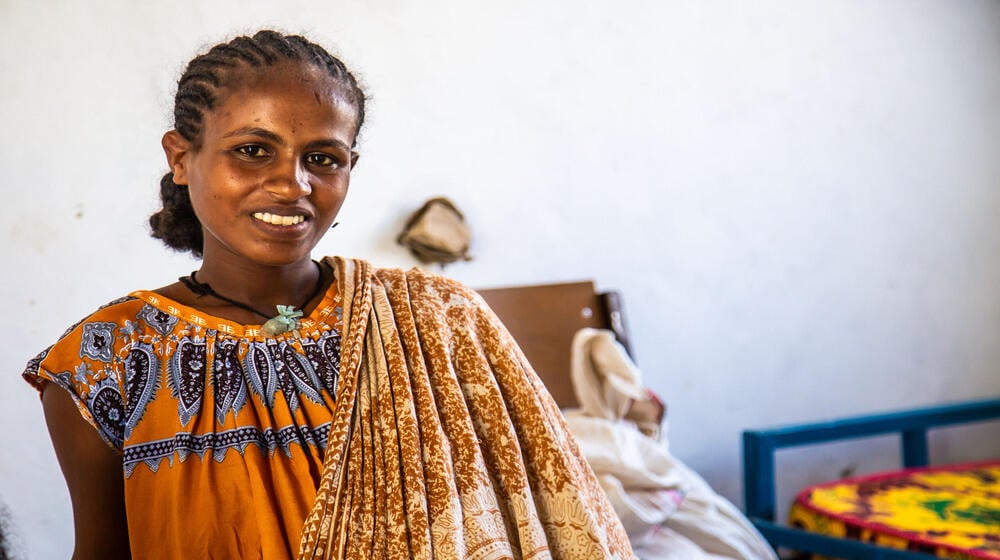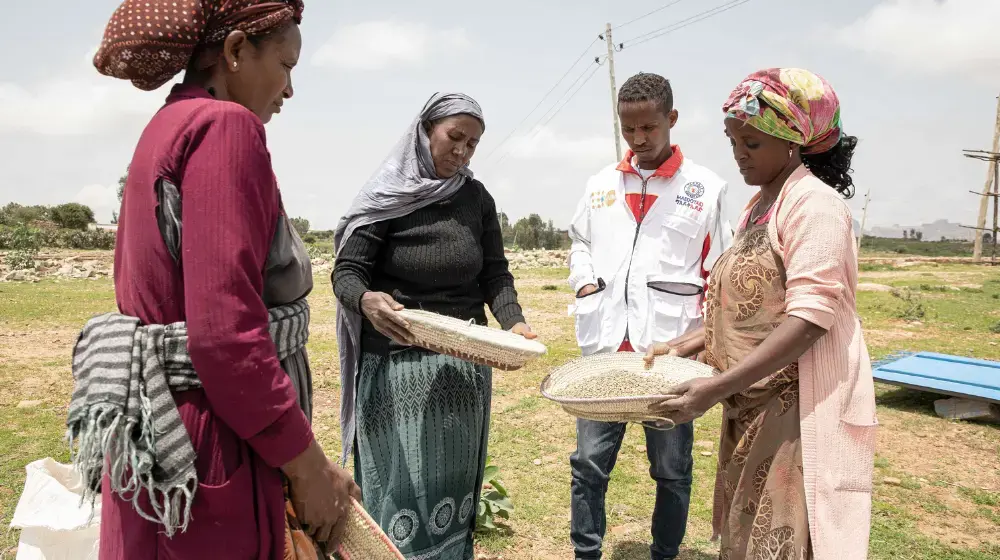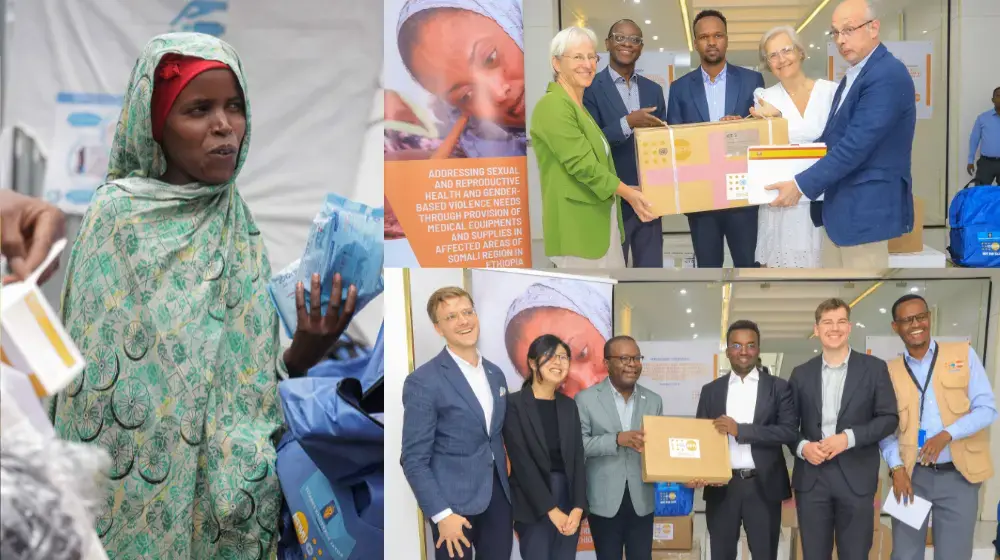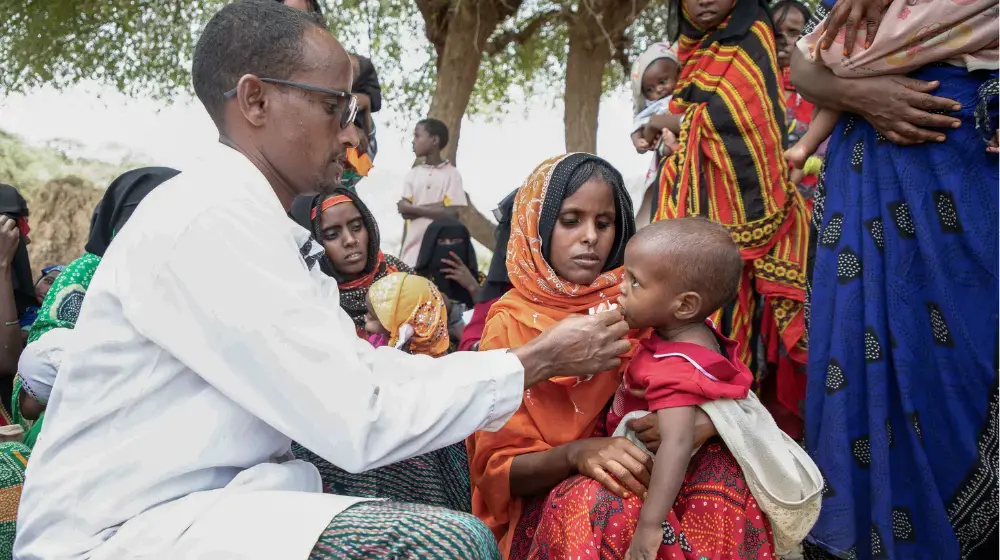HAWZEN, Tigray Region - “I have seen my sister and many other pregnant women suffering or dying due to the lack of maternal health services and medication during the conflict. Now, with the peace agreement, we can move and access health services”, says Tigist, nine-months pregnant with her first child at Maedot’s Maternity Waiting Home in Megab Health Center in Hawzen town, Eastern zone of the Tigray Region.
Tigist, a 23 year old mother-to-be, lives in Koraro with her husband and family, a small rural area three hours trek through the mountainous terrain.
“I was carried on a wooden stretcher by members of my community because there is no transport. The health center at my village was destroyed during the conflict and that’s why we came to Hawzen Health Center”, explains Tigist to UNFPA.
A two-year conflict has left a grim balance with extensive damage and destruction of health facilities in Tigray. Nearly 79% of the health facilities are non functional [1], severely compromising the delivery of lifesaving health services, including maternal and newborn care.
“We are thankful that now we can travel freely to reach health services. Staying here gives me confidence with my pregnancy and childbirth. I can’t wait to meet my baby”, says Tigist accompanied by another young expectant mother at the Maternity Waiting Home.
Maternal Health services in Tigray
Like Tigist, many other mothers-to-be have found some solace with the ‘Cessation of Hostilities Agreement’ (CoHA) signed in November 2022. Safety and security has improved significantly across the region allowing the mobility and access to health services.
Despite some improvements, health facilities are largely overstretched in resources, capacity and staff to provide comprehensive health services as prior to the conflict.
“This health facility is meant to serve 6 districts but due to the destruction of nearby health facilities, we are currently supporting 9. Mothers have to come on foot because the ambulance was looted. Other services - like prevention of mother-to-child transmission of HIV are not available due to the lack of treatment and medicines”, says the Medical Director of Hawzen Health Center.
Since the onset of the conflict, the Maternal Mortality Ratio (MMR) has increased fivefold in the region, as reflected by a study conducted by the Regional Health Bureau and Mekelle University in May 2022. Health professionals explain this level is comparable to those of 22 years back.
“The provision of maternal and newborn care remains challenging with such a high number of non functional health facilities, shortages of medical supplies and the scarcity of ambulances and fuel to do referrals”, explains the Medical Director of Hawzen Health Center.
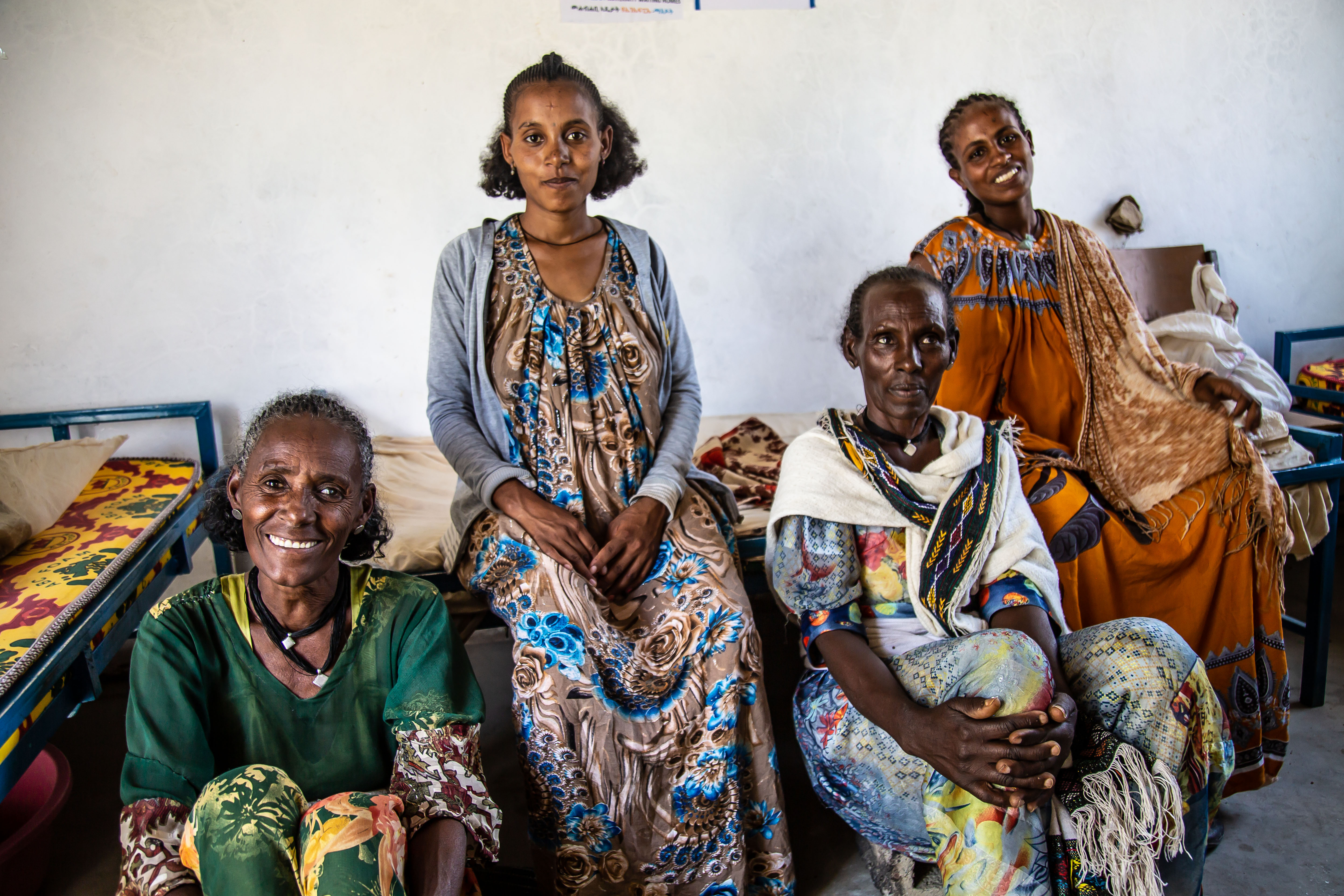
Maternity Waiting Homes, a strategy to prevent maternal deaths
Maternity Waiting Homes are one of UNFPA’ strategies to improve access to comprehensive obstetric care for pregnant women living far from health facilities - particularly rural settings - and to prevent maternal and newborn mortality and morbidity from home-deliveries.
“If it was not for the Maternity Waiting Homes, we would be dealing with even higher obstetric complications during pregnancy and childbirth - like fistula or even death”, says Eden Alem, doctor and UNFPA Sexual and Reproductive Health Analyst in Tigray.
In Ethiopia, recent studies highlight that Maternity Waiting Homes contribute more than 80% to the reduction of maternal deaths and 70% for the occurrence of stillbirths.
“Pregnant women can stay for the last weeks of their pregnancy while receiving services like antenatal care, ultrasound checks, follow up on vital signs or birth preparedness information. In case of severe medical conditions, they are referred to higher specialized services”, says Eden Alem.
Recovering the health system’s capacity in Tigray
Last year, UNFPA reached nearly 235,000 crisis-affected individuals with sexual and reproductive health services by deploying 156 midwives and 41 Mobile Health and Nutrition Teams (MHNT) to support maternal and reproductive healthcare services in hard-to-reach areas countrywide. Medical supplies and equipment were distributed to support over 153 health facilities and benefit over 2,230,269 persons across 9 affected regions.
In Tigray, UNFPA has reached over 96,000 displaced women and girls with sexual and reproductive health services by 193 midwives and health extension workers deployed to support Maternity Waiting Homes and affected health facilities in 2023. These services are provided with the support of Canada, Ministry of Women and Social Affairs - World Bank - UNOPS, Irish Aid, USAID, and Italy.
Furthermore, over 237 metric tons of Reproductive Health Kits, Dignity Kits, medical equipment and supplies have been distributed to 34 health facilities in the region during the first semester of 2023. Overall, these supplies will benefit over half a million people with sexual and reproductive health and gender-based violence services.
Despite all efforts to increase the coverage of maternal and reproductive healthcare, much support is needed to build back the health system’s capacity to respond to the needs of women like Tigist in the region.
The UNFPA Humanitarian Response appeal of nearly $45 million will support the strengthening of the health system and build back the capacities on maternal and reproductive health services in Tigray and other 7 crisis-affected regions in the country through the end of 2023. To date, 39% of the humanitarian appeal remains unfunded.
For Tigist, the end of conflict in the region is a blessing, particularly with a baby on the way. “I wish peace will remain and we are able to come back to our peasant life. I want my child to know no suffering”.
[1] Tigray Health Sector, Annual Bulletin (2021).

